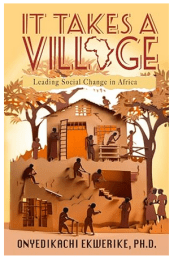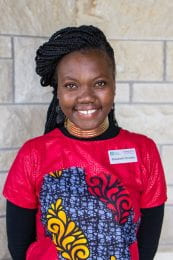The Staley School of Leadership at Kansas State University invites the public to the Mandela Washington Fellowship Graduation Ceremony. Join us 4-6:30 p.m. Thursday, July 25, at the Leadership Studies building (1300 Mid-Campus Drive N. Manhattan, KS, 66506). Please RSVP here.

Guests will enjoy brief reflections of each Fellow’s work and their experiences during their six weeks at K-State and in Kansas. After the program, cocktails and heavy hors d’oeuvres will be served in the lobby, with time to mingle and connect one last time before they return home.
We encourage the community to attend to gain understanding of the impact of this program on both the Fellows and our surrounding communities. The relationships and partnerships formed by the Fellows will continue to foster positive global impacts. Learn more about the 2024 K-State cohort here.
K-State and the Staley School have hosted 25 Mandela Washington Fellows for a Civic Leadership Institute. The Mandela Washington Fellowship is the flagship program of the U.S. Department of State’s Young African Leaders Initiative. Fellows come from more than 20 different Sub-Saharan African nations and were selected for the program because of their civic leadership work.
See who’s going on Facebook.
The Mandela Washington Fellowship is a program of the U.S. Department of State with funding provided by the U.S. Government and administered by IREX. For more information about the Mandela Washington Fellowship, visit mandelawashingtonfellowship.org and join the conversation at #YALI2024.




 In the book’s introduction, Ekwerike recounts his own story. Through leading a mental health organization in Nigeria, as well as being part of leadership development programs like the Mandela Washington Fellowship, he realized that there was a need for more in order to do more, which led him to a doctoral program and ultimately to writing this book. He went through the learning process and then wrote this book to teach young people how to learn social change effectively. This book is a product of qualitative research work for his Ph.D. dissertation.
In the book’s introduction, Ekwerike recounts his own story. Through leading a mental health organization in Nigeria, as well as being part of leadership development programs like the Mandela Washington Fellowship, he realized that there was a need for more in order to do more, which led him to a doctoral program and ultimately to writing this book. He went through the learning process and then wrote this book to teach young people how to learn social change effectively. This book is a product of qualitative research work for his Ph.D. dissertation. 